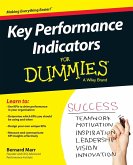Bruce C. Greenwald, Judd Kahn
Globalization
N. the Irrational Fear That Someone in China Will Take Your Job
14,99 €
inkl. MwSt.
Versandfertig in über 4 Wochen

7 °P sammeln
Bruce C. Greenwald, Judd Kahn
Globalization
N. the Irrational Fear That Someone in China Will Take Your Job
- Broschiertes Buch
- Merkliste
- Auf die Merkliste
- Bewerten Bewerten
- Teilen
- Produkt teilen
- Produkterinnerung
- Produkterinnerung
In Globalization , authors Bruce Greenwald and Judd Kahn cut through the myths surrounding globalization and look more closely at its real impact, presenting a more accurate picture of the present status of globalization and its future consequences. Page by page, they uncover the real facts about globalization and answer the most important questions it raises, including: Will globalization increase or diminish in economic importance? Do higher living standards depend more on global or local conditions- and What are the actual implications of globalization for financial markets?
Andere Kunden interessierten sich auch für
![Fixing Britain Fixing Britain]() Fixing Britain24,99 €
Fixing Britain24,99 €![The Power to Compete The Power to Compete]() Hiroshi MikitaniThe Power to Compete21,99 €
Hiroshi MikitaniThe Power to Compete21,99 €![Earth Wars Earth Wars]() Geoff HiscockEarth Wars36,99 €
Geoff HiscockEarth Wars36,99 €![World Cities and Nation States World Cities and Nation States]() Greg ClarkWorld Cities and Nation States64,99 €
Greg ClarkWorld Cities and Nation States64,99 €![Red Capitalism - Revised and Updated Red Capitalism - Revised and Updated]() Carl WalterRed Capitalism - Revised and Updated24,99 €
Carl WalterRed Capitalism - Revised and Updated24,99 €![Key Performance Indicators for Dummies Key Performance Indicators for Dummies]() Bernard MarrKey Performance Indicators for Dummies23,99 €
Bernard MarrKey Performance Indicators for Dummies23,99 €![The Four Lenses of Innovation The Four Lenses of Innovation]() Rowan GibsonThe Four Lenses of Innovation26,99 €
Rowan GibsonThe Four Lenses of Innovation26,99 €-
-
-
In Globalization , authors Bruce Greenwald and Judd Kahn cut through the myths surrounding globalization and look more closely at its real impact, presenting a more accurate picture of the present status of globalization and its future consequences. Page by page, they uncover the real facts about globalization and answer the most important questions it raises, including: Will globalization increase or diminish in economic importance? Do higher living standards depend more on global or local conditions- and What are the actual implications of globalization for financial markets?
Hinweis: Dieser Artikel kann nur an eine deutsche Lieferadresse ausgeliefert werden.
Hinweis: Dieser Artikel kann nur an eine deutsche Lieferadresse ausgeliefert werden.
Produktdetails
- Produktdetails
- Verlag: Wiley & Sons
- 1. Auflage
- Seitenzahl: 208
- Erscheinungstermin: 5. Oktober 2010
- Englisch
- Abmessung: 216mm x 140mm x 12mm
- Gewicht: 271g
- ISBN-13: 9780470632437
- ISBN-10: 0470632437
- Artikelnr.: 29748183
- Herstellerkennzeichnung
- Libri GmbH
- Europaallee 1
- 36244 Bad Hersfeld
- gpsr@libri.de
- Verlag: Wiley & Sons
- 1. Auflage
- Seitenzahl: 208
- Erscheinungstermin: 5. Oktober 2010
- Englisch
- Abmessung: 216mm x 140mm x 12mm
- Gewicht: 271g
- ISBN-13: 9780470632437
- ISBN-10: 0470632437
- Artikelnr.: 29748183
- Herstellerkennzeichnung
- Libri GmbH
- Europaallee 1
- 36244 Bad Hersfeld
- gpsr@libri.de
Bruce C. Greenwald, PhD, currently serves as the Robert Heilbrunn Professor of Finance and Asset Management at Columbia University's Graduate School of Business. Judd Kahn, PhD, is currently COO of Summit Street Capital Management, LLC. They also coauthored Value Investing: From Graham to Buffett and Beyond and Competition Demystified.
Acknowledgments.
Introduction: Just How Global Are We?
Chapter 1: It May Be News, But It Isn't New: A Brief History of
Globalization.
Tradable Goods.
From Goods to Services.
Which Services Remain Rooted?
Why So Newsworthy?
Chapter 2: Countries Control Their Fates: How Little Globalization
Explains.
Who Calls the Shots?
An Inadvertent Experiment.
The Uneven Course of Manufacturing.
The Recipe for Productivity Growth.
Importance of Incremental Improvements.
Tell Me Again: Why Is China Rising?
Episodic Improvements and Retreats.
Widely Shared Diversions.
What About Free Trade?
Keep It Local.
Chapter 3: Employment Trends for Globalization 3.0: Are All the Good Jobs
Going Away?
Recent History as a Guide.
Recent Patterns of Employment and Unemployment in the United States.
The Changing Nature of Work.
The Meaning Is in the Details.
That Giant Sucking Sound Is Coming from . . . .
But Will the Future Be Different?
What about Wages?
Chapter 4: Can We Make Any Money?: What Globalization Does to Profi ts.
Companies Under Globalization 3.0.
Why Some Companies Are Profi table.
Profi ts in Competitive Markets: Low Before Globalization, and Low After.
Profi ts in Protected Markets: Do They Survive?
How to Keep Competitors Out.
The Special Role of Economies of Scale Advantages.
Competitive Advantages in a Global World.
The Future of Profitability.
Chapter 5: International Finance in a Global World: Home Field Advantage.
Flow of Funds.
Foreign Direct Investment: Not Where the Action Is.
Financial Markets and Portfolio Investment: Not Here, Either.
Institutions as Investors: These Do Matter.
Safer at Home: Financial Markets and the Limits of Globalization.
Global Capital Markets and Economic Development: More Headlines Than
Production Lines.
Chapter 6: A Genuine Global Economic Problem: Replacing the Consumer of
Last Resort.
The Link between Reserve Currencies and Global Financial Stability.
Chronic Surplus Countries and Monetary Mercantilism.
The Global Financial System and Global Economic Stability.
The Situation of the United States.
A Modest Proposal for a New Reserve Currency.
Conclusion: Beyond Economics.
Globalization and Everything Else.
One Last Question.
Notes.
About the Authors.
Index.
Introduction: Just How Global Are We?
Chapter 1: It May Be News, But It Isn't New: A Brief History of
Globalization.
Tradable Goods.
From Goods to Services.
Which Services Remain Rooted?
Why So Newsworthy?
Chapter 2: Countries Control Their Fates: How Little Globalization
Explains.
Who Calls the Shots?
An Inadvertent Experiment.
The Uneven Course of Manufacturing.
The Recipe for Productivity Growth.
Importance of Incremental Improvements.
Tell Me Again: Why Is China Rising?
Episodic Improvements and Retreats.
Widely Shared Diversions.
What About Free Trade?
Keep It Local.
Chapter 3: Employment Trends for Globalization 3.0: Are All the Good Jobs
Going Away?
Recent History as a Guide.
Recent Patterns of Employment and Unemployment in the United States.
The Changing Nature of Work.
The Meaning Is in the Details.
That Giant Sucking Sound Is Coming from . . . .
But Will the Future Be Different?
What about Wages?
Chapter 4: Can We Make Any Money?: What Globalization Does to Profi ts.
Companies Under Globalization 3.0.
Why Some Companies Are Profi table.
Profi ts in Competitive Markets: Low Before Globalization, and Low After.
Profi ts in Protected Markets: Do They Survive?
How to Keep Competitors Out.
The Special Role of Economies of Scale Advantages.
Competitive Advantages in a Global World.
The Future of Profitability.
Chapter 5: International Finance in a Global World: Home Field Advantage.
Flow of Funds.
Foreign Direct Investment: Not Where the Action Is.
Financial Markets and Portfolio Investment: Not Here, Either.
Institutions as Investors: These Do Matter.
Safer at Home: Financial Markets and the Limits of Globalization.
Global Capital Markets and Economic Development: More Headlines Than
Production Lines.
Chapter 6: A Genuine Global Economic Problem: Replacing the Consumer of
Last Resort.
The Link between Reserve Currencies and Global Financial Stability.
Chronic Surplus Countries and Monetary Mercantilism.
The Global Financial System and Global Economic Stability.
The Situation of the United States.
A Modest Proposal for a New Reserve Currency.
Conclusion: Beyond Economics.
Globalization and Everything Else.
One Last Question.
Notes.
About the Authors.
Index.
Acknowledgments.
Introduction: Just How Global Are We?
Chapter 1: It May Be News, But It Isn't New: A Brief History of
Globalization.
Tradable Goods.
From Goods to Services.
Which Services Remain Rooted?
Why So Newsworthy?
Chapter 2: Countries Control Their Fates: How Little Globalization
Explains.
Who Calls the Shots?
An Inadvertent Experiment.
The Uneven Course of Manufacturing.
The Recipe for Productivity Growth.
Importance of Incremental Improvements.
Tell Me Again: Why Is China Rising?
Episodic Improvements and Retreats.
Widely Shared Diversions.
What About Free Trade?
Keep It Local.
Chapter 3: Employment Trends for Globalization 3.0: Are All the Good Jobs
Going Away?
Recent History as a Guide.
Recent Patterns of Employment and Unemployment in the United States.
The Changing Nature of Work.
The Meaning Is in the Details.
That Giant Sucking Sound Is Coming from . . . .
But Will the Future Be Different?
What about Wages?
Chapter 4: Can We Make Any Money?: What Globalization Does to Profi ts.
Companies Under Globalization 3.0.
Why Some Companies Are Profi table.
Profi ts in Competitive Markets: Low Before Globalization, and Low After.
Profi ts in Protected Markets: Do They Survive?
How to Keep Competitors Out.
The Special Role of Economies of Scale Advantages.
Competitive Advantages in a Global World.
The Future of Profitability.
Chapter 5: International Finance in a Global World: Home Field Advantage.
Flow of Funds.
Foreign Direct Investment: Not Where the Action Is.
Financial Markets and Portfolio Investment: Not Here, Either.
Institutions as Investors: These Do Matter.
Safer at Home: Financial Markets and the Limits of Globalization.
Global Capital Markets and Economic Development: More Headlines Than
Production Lines.
Chapter 6: A Genuine Global Economic Problem: Replacing the Consumer of
Last Resort.
The Link between Reserve Currencies and Global Financial Stability.
Chronic Surplus Countries and Monetary Mercantilism.
The Global Financial System and Global Economic Stability.
The Situation of the United States.
A Modest Proposal for a New Reserve Currency.
Conclusion: Beyond Economics.
Globalization and Everything Else.
One Last Question.
Notes.
About the Authors.
Index.
Introduction: Just How Global Are We?
Chapter 1: It May Be News, But It Isn't New: A Brief History of
Globalization.
Tradable Goods.
From Goods to Services.
Which Services Remain Rooted?
Why So Newsworthy?
Chapter 2: Countries Control Their Fates: How Little Globalization
Explains.
Who Calls the Shots?
An Inadvertent Experiment.
The Uneven Course of Manufacturing.
The Recipe for Productivity Growth.
Importance of Incremental Improvements.
Tell Me Again: Why Is China Rising?
Episodic Improvements and Retreats.
Widely Shared Diversions.
What About Free Trade?
Keep It Local.
Chapter 3: Employment Trends for Globalization 3.0: Are All the Good Jobs
Going Away?
Recent History as a Guide.
Recent Patterns of Employment and Unemployment in the United States.
The Changing Nature of Work.
The Meaning Is in the Details.
That Giant Sucking Sound Is Coming from . . . .
But Will the Future Be Different?
What about Wages?
Chapter 4: Can We Make Any Money?: What Globalization Does to Profi ts.
Companies Under Globalization 3.0.
Why Some Companies Are Profi table.
Profi ts in Competitive Markets: Low Before Globalization, and Low After.
Profi ts in Protected Markets: Do They Survive?
How to Keep Competitors Out.
The Special Role of Economies of Scale Advantages.
Competitive Advantages in a Global World.
The Future of Profitability.
Chapter 5: International Finance in a Global World: Home Field Advantage.
Flow of Funds.
Foreign Direct Investment: Not Where the Action Is.
Financial Markets and Portfolio Investment: Not Here, Either.
Institutions as Investors: These Do Matter.
Safer at Home: Financial Markets and the Limits of Globalization.
Global Capital Markets and Economic Development: More Headlines Than
Production Lines.
Chapter 6: A Genuine Global Economic Problem: Replacing the Consumer of
Last Resort.
The Link between Reserve Currencies and Global Financial Stability.
Chronic Surplus Countries and Monetary Mercantilism.
The Global Financial System and Global Economic Stability.
The Situation of the United States.
A Modest Proposal for a New Reserve Currency.
Conclusion: Beyond Economics.
Globalization and Everything Else.
One Last Question.
Notes.
About the Authors.
Index.







